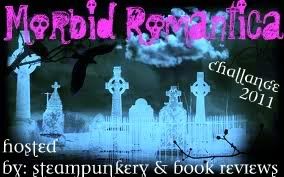The Book Blogger Hop is a weekly meme hosted by Jennifer at Crazy for Books, to help book bloggers and readers interact, and to find new blogs. Every week, a question is posted for participants to answer.
Hoppy happing!
A small story on the speculation of books. Please bear with me as I experiment with the construction of this blog.
 Warning: This review contains mild to severe plot spoilers.
Warning: This review contains mild to severe plot spoilers.Paul Berlin is a member of the United States Army during the Vietnam War. While he is in Vietnam, a fellow member of his squad, Cacciato, goes AWOL. This is what happens after, or what could have happened, or maybe happened and maybe not. Because sometimes the hardest thing to see is the truth.
Let’s talk about internal conflict.
This book was rife with it: the conflict between freedom and obligation, between a sense of duty and a sense of self, between the glory of possibility and the harshness of reality. And that was just the beginning—by the end the book has explored so much more.
It's unfortunate that I can't say much more without getting into spoilers, however slight.
--SPOILER WARNING--
I will admit that there were hints of the exact nature of the internal conflict throughout the book. Strange people and actions, items that should have been accounted for and yet were not—all of it combined to create a hallucinogenic effect. The brief spots of confusion do resolve by the end, but the long irresolution of strange events serve to make the story much more effective.
The buildup of conflict within the book is partly due to the fact that the suspension of belief used by O’Brien is amazingly powerful. With the use of short, powerful phrases, and brief transitions from past tense to present, O’Brien creates an image of the Vietnam War that is both powerful and real. From the first sentence, he captures the reader’s attention and holds it until the end, exploring the deeper issues of war along the way: what is war? What is it to say that the war is over? And is it really over? What does it mean to go after Cacciato? Is it a dream, or is it something else?
---
Notes: Going After Cacciato is Tim O’Brien’s second novel, and was originally published in 1978 by Delacorte Press. The version I read was paperback, published in 1999 by Broadway Books, a division of Random House, by arrangement with Delacorte Press. The cover art was designed by Nicola Ferguson. For more information about Tim O’Brien and his works, please visit his website.
Realistic historical fiction, 336 pages, close third person point of view (bordering on omniscient third in places)
Topics: The definitions of war and peace, reality versus possibility, freedom and happiness versus duty and obligation, fear
Warnings: Profanity scattered throughout. Violence and death, though it is stated as a fact, and is not explicitly condoned (please note that this is a novel about the Vietnam War, and that violence and death are inherently a part of that). Some non-detailed references to sexual acts and fantasies, and a few non-detailed references to kissing.
Five out of Five.
 Arthur Dent is stuck in the past. Literally--he’s been marooned on a prehistoric Earth that isn’t due to be destroyed for another two million years. Then Ford Prefect shows up, and naturally, all hope of normalcy disappears. A floating sofa is explained by eddies in the space-time continuum (whoever he is), and in no time Arthur and Ford are two million years in the future, on the day a cricket game is interrupted by white robots from the planet Krikkit. These robots, it turns out, are out to destroy the world, and it is up to Arthur, Ford, and Slartibartfast to stop them.
Arthur Dent is stuck in the past. Literally--he’s been marooned on a prehistoric Earth that isn’t due to be destroyed for another two million years. Then Ford Prefect shows up, and naturally, all hope of normalcy disappears. A floating sofa is explained by eddies in the space-time continuum (whoever he is), and in no time Arthur and Ford are two million years in the future, on the day a cricket game is interrupted by white robots from the planet Krikkit. These robots, it turns out, are out to destroy the world, and it is up to Arthur, Ford, and Slartibartfast to stop them. Zaphod Beeblebrox just wants something to eat. Unfortunately, the Universe just doesn’t seem to agree. Someone always seems to want his undivided attention, whether it’s Vogons intent on destroying the last of the Earthlings (and therefore everyone else on the Heart of Gold), or his great-grandfather/grandson, he just can’t ever seem to get where he wants to go. So when he finally finds himself at Milliways, the Restaurant at the End of the Universe, chaos naturally ensues.
Zaphod Beeblebrox just wants something to eat. Unfortunately, the Universe just doesn’t seem to agree. Someone always seems to want his undivided attention, whether it’s Vogons intent on destroying the last of the Earthlings (and therefore everyone else on the Heart of Gold), or his great-grandfather/grandson, he just can’t ever seem to get where he wants to go. So when he finally finds himself at Milliways, the Restaurant at the End of the Universe, chaos naturally ensues.


